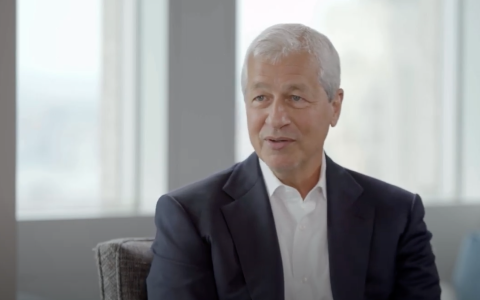
In a compelling exchange at the New York Times DealBook Summit, JP Morgan CEO Jamie Dimon articulated a vision of fiscal responsibility and equitable taxation in response to a query from hedge fund leader Bill Ackman. Ackman, intrigued by Dimon's leadership acumen, posed a hypothetical: If Dimon were to assume the presidency, what would be his primary initiatives?
Dimon's response highlighted a commitment to balanced economic growth and fairness. He proposed assembling a cabinet of intellectually diverse and capable individuals, transcending party lines, to address the nation's pressing issues. This approach underscores the importance of collaborative, bipartisan problem-solving in governance, resonating strongly with the wealth advisory and RIA community.
Central to Dimon's economic strategy is the reform of tax policies. He advocated for the elimination of the carried interest loophole, a tax provision that has long been a point of contention due to its perceived favoritism towards high-income individuals in investment sectors. This stance aligns with the sector's growing call for tax fairness and the efficient allocation of fiscal resources.
Additionally, Dimon suggested enhancing the earned income tax credit, broadening its reach to assist low-income workers, including those without children. This move would inject capital into communities, fostering economic empowerment and growth at the grassroots level. Such policy proposals demonstrate a nuanced understanding of economic levers and their impact on various segments of society.
On foreign policy, Dimon emphasized diplomacy and global engagement, reflecting an understanding of the interconnected nature of modern economies. Domestically, he prioritized education, workforce development, and immigration reform, acknowledging these areas as critical drivers of long-term economic stability and growth.
In a candid moment, Dimon addressed the wealthy, including Ackman, underscoring the need for increased tax contributions from high earners. This approach to wealth redistribution, while controversial, points to a broader discussion about the social responsibility of the affluent and the role of taxation in addressing economic disparities.
Throughout his remarks, Dimon maintained a focus on economic expansion, emphasizing the need for a growth-oriented strategy that fosters business-friendly environments. He highlighted the positive economic policies he observed in countries like France and the UK, advocating for similar pro-growth and innovation-driven approaches in the U.S.
While acknowledging his lack of political aspirations and the limitations of presidential power in tax reform, Dimon's insights offer valuable perspectives for wealth advisors and RIAs. His views on fiscal policy, economic growth, and social equity provide food for thought in an industry deeply intertwined with these issues.
Dimon's commentary, interwoven with elements of pragmatism and visionary thinking, serves as a compelling discourse for financial professionals navigating the complex landscape of economic policy and wealth management.



